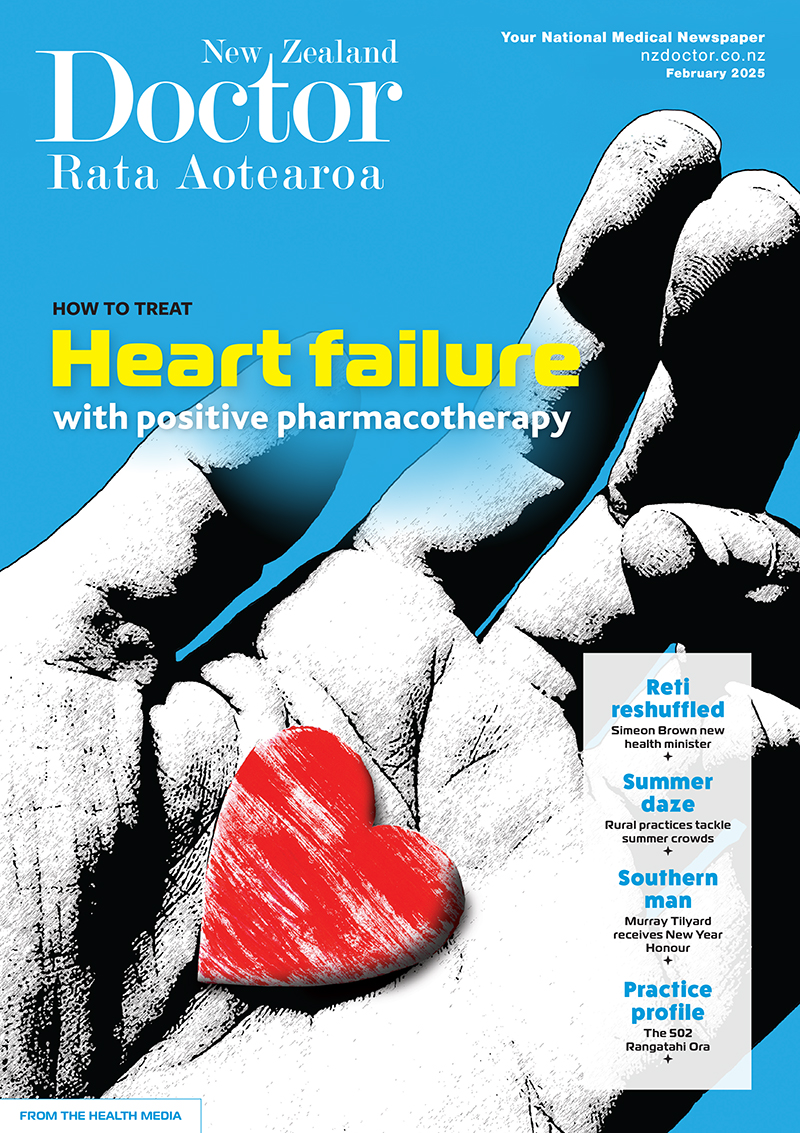Pharmacist prescribers Linda Bryant and Leanne Te Karu discuss positive polypharmacy for heart failure. Current evidence shows the intensive implementation of four medications offers the greatest benefit to most patients with heart failure, with significant reductions in cardiovascular mortality, heart failure hospitalisations and all-cause mortality
Artificial intelligence: Will it replace ophthalmologists in the future?
Artificial intelligence: Will it replace ophthalmologists in the future?

Unprecedented advances in artificial intelligence (AI) for medical use are paving the way for major clinical changes and improved outcomes for people with eye health problems around the world, according to the Royal Australian and New Zealand College of Ophthalmologists (RANZCO).
Many questions remain but one thing is certain: ophthalmology is becoming a leading proving ground for AI systems in medicine. AI systems are already achieving incredible results in a range of trials and in some instances even performing as well as sub-specialist experts in ophthalmology.
Speaking from RANZCO’s 51st Annual Scientific Congress in Sydney, Associate Professor and Deputy Director of the Centre for Eye Research Australia (CERA) Peter van Wijngaarden investigates the potential of AI in healthcare.
“Rapid advances in the development of artificial intelligence has the potential to change the landscape of global eye health,” Peter states.
“The beginning of this revolution was marked recently by the US Food and Drug Administration (FDA) approval of an AI system for the detection of eye disease from retinal photographs. This is noteworthy as it is the first approval of the application of AI in the autonomous diagnosis of disease in any field of medicine.”
AI in ophthalmology is predicted to improve the precision of diagnosis, increase screening of diseases and aid in cutting the costs of healthcare, allowing ophthalmologists to focus on delivering care to patients.
“Artificial intelligence, especially deep learning, has gained significant interest from healthcare systems over the past few years. In particular, we have seen AI have substantial promise for diabetic retina screening in remote areas without ophthalmologists,” says Professor Tien Yin Wong, Medical Director of the Singapore National Eye Centre (SNEC) and Chairman of the Board of the Singapore Eye Research Institute.
However, the question of whether clinicians and consumers are ready for the use of this technology in health care and whether it is useful to support real world clinical decisions must be asked.
“The extent to which the work tasks of an ophthalmologist can be carried out by AI is a question of both advances in technology and the willingness of doctors and patients to adopt AI in healthcare. If AI is used in the clinic it should complement and enhance human capabilities, removing the more mundane work tasks and providing safeguards to reduce error. If this is done well AI could improve outcomes for patients and make doctors more efficient, freeing up time for the human interaction between doctor and patient that has been the cornerstone of medicine for millennia,” concludes A/Prof Peter van Wijngaarden.
For more information about RANZCO’s 2019 Scientific Congress please click here: http://www.ranzco2019.com/



